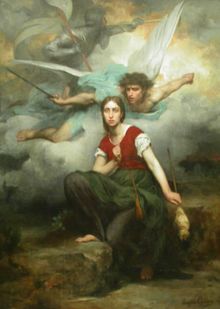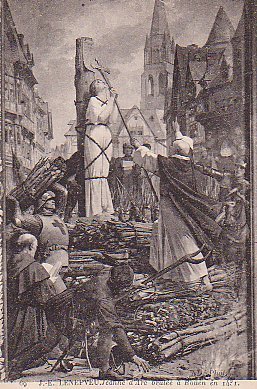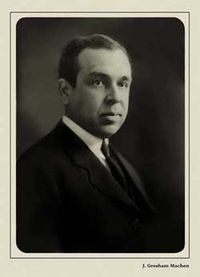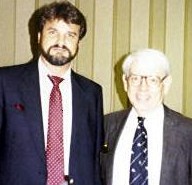
"I place trust in God, my creator, in all things; I love Him with all my heart."
On this day in 1431 Jeanne d'Arc (1411-1431) perished at the fiery hands of her English foes. She was subsequently declared innocent by the Inquisition on July 7, 1456 after a lengthy re-trial process which was initiated shortly after the English were finally driven from Rouen, thereby allowing access to the documents and witnesses associated with her trial; the presiding Inquisitor, Jean Bréhal, ruled that the original trial had been tainted by fraud, illegal procedures, and intimidation of both the defendant and many of the clergy who had taken part in the trial, and she was therefore described as a martyr by the Inquisitor.
After the usual lengthy delay associated with the sluggish and questionable process of canonization, she was beatified on April 11, 1909 and canonized as a saint on May 16, 1920.
For some Christians of a different tradition than me, today is the feast day of St. Joan of Arc. Interestingly, it comes on the heels of Memorial Day. I was reminded that many female Christian soldiers wear a medal of Jeanne d'Arc along with their dog tags, seeing as how she was the patron saint for female soldiers (and any female military).
So, while keeping all service personnel in your prayers, today on the feast day of Joan of Arc, keep in mind the American women who have gone to serve and not returned home.
St. Joan refused to follow any command but God's!












